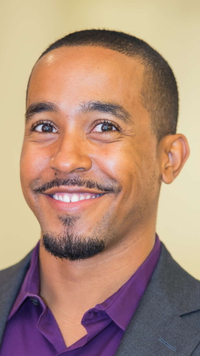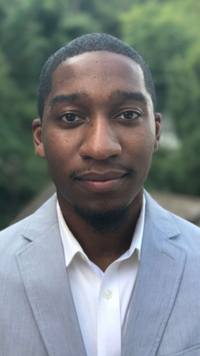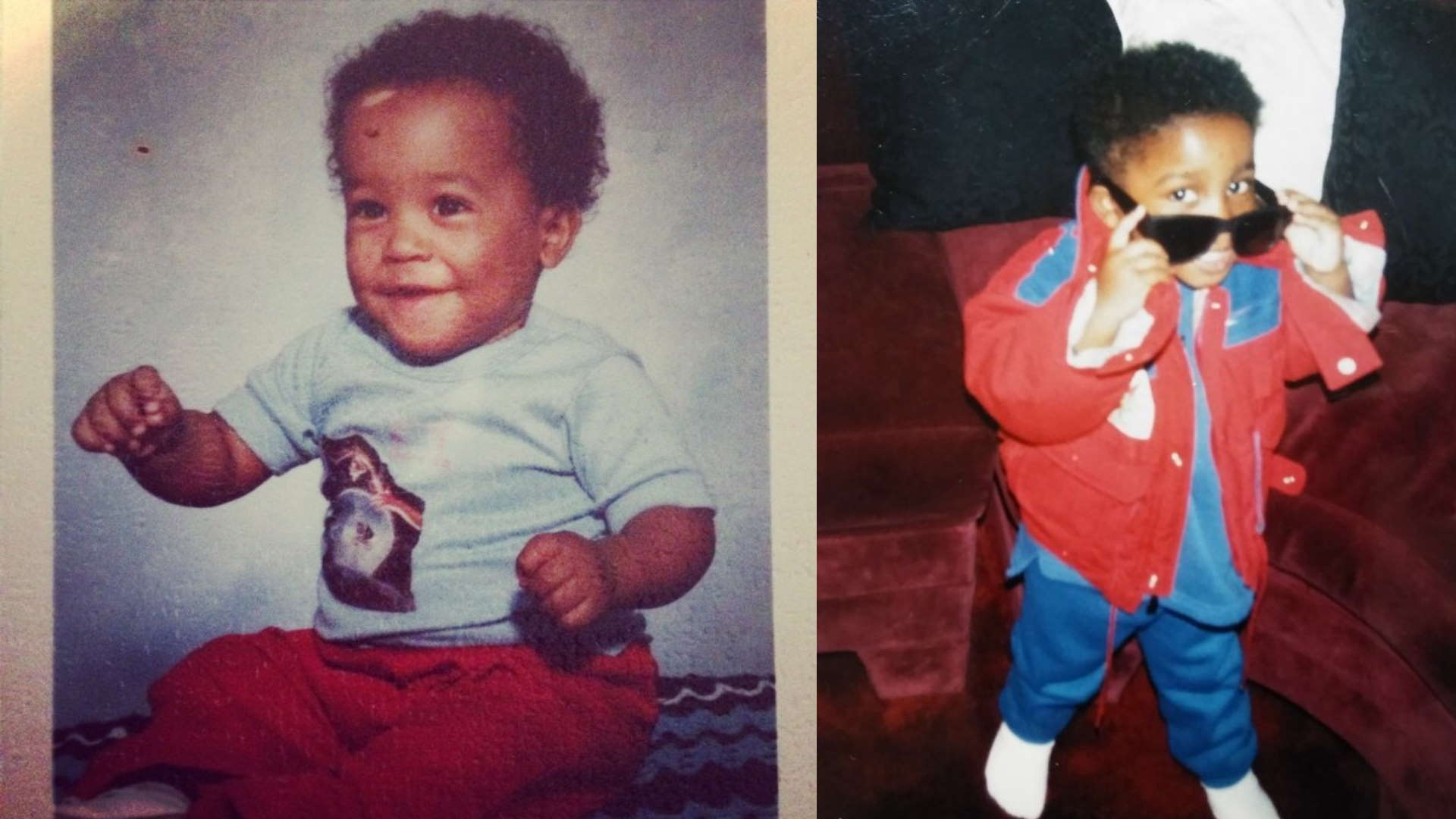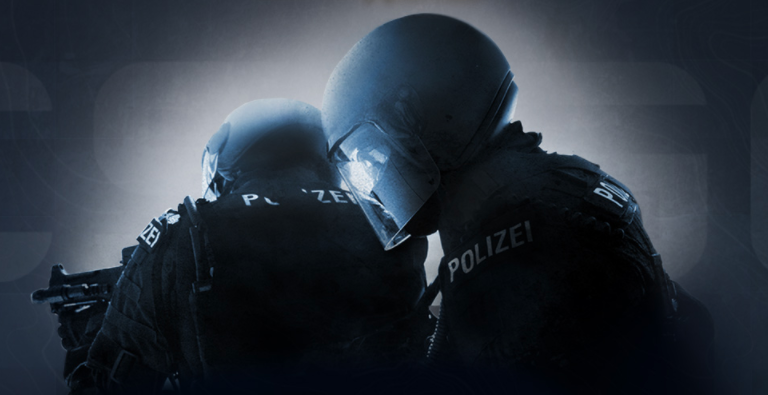Black History Month: Leading voices of Intel offer advice for future technologists
Intel veterans give insight into their lives in tech and inspiration for the next generation.

In celebration of Black History Month this year, we've been getting in touch with some of the brilliant minds from behind the scenes at Intel. Marcus Kennedy and Steven Callender both take active roles in initiatives that seek to bolster diversity and inclusion across the board, and have kindly provided some insights about their inspirations, passions and aspirations.
So, whether you're an aspiring technologist, or simply interested to see how Intel's working with its employees to raise the standard, we bring you two success stories from the voices of Intel employees, who are here to talk you through their journeys within the world of technology.
Fair warning, I was already tearing up after the first answers.
This interview was first published on February 17, 2021.

General Manager of Intel's Gaming Division & Co-chair of Intel's Black Leadership Council
After graduating with an Industrial Engineering degree from Florida State University and a handful of internships, I went to work for Kraft Foods in manufacturing. A few years later, Intel called and since I had been building my own computers for a while and liked them as a company, I went ahead and accepted the interview. It turned out to be one of the best decisions I ever made.

Intel Labs Wireless Engineer & Chair of the Portland Pre-Collegiate Initiative, OR chapter
I came to Intel after completing my doctoral degree from UC Berkeley in Electrical Engineering. While a student there, our research group had a strong history of collaboration with Intel, so the on-ramp to the workforce (and specifically to Intel) was pretty straightforward. I was particularly keen to join an organization that had a strong focus on research and publishing as—at that time—I had wanted to continue to keep options open to join research in academia. Intel Labs – with its strong focus on research—felt like a natural fit for that.
Were there any specific engineers, inventors, visionaries, or people in your own life who inspired/still inspire you?
Marcus Kennedy: My dad has always been my hero, and he constantly inspired me to greater achievements. He always told me that if I tried my best at everything I did, that I could “write my own ticket”, meaning I would have full control over my own destiny and I could shape it however I wanted. Thanks to him, I’ve never stopped trying to always improve myself, and his lifelong dedication to teaching and uplifting others continues to inspire me to find ways to do the same.
Steven Callender: First and foremost, I’d credit my parents who were immigrants and while neither was a technologist, they instilled some foundational behaviors early on – the discipline of focus, hard work, rigor around academics—that I feel really set me up for the path ahead successfully.
I was (and continue to be) a huge fan of Bill Nye and Neil DeGrasse—both of them have done exceptional work to make complicated concepts in science accessible to the masses. I am also a huge fan of Richard Feynman’s lectures on physics. Not all technologists and scientists are great storytellers and I have been particularly inspired by not any specific invention or technology but the communication of those concepts by these thought leaders.
Keep up to date with the most important stories and the best deals, as picked by the PC Gamer team.

Was there a specific piece of tech that caught your imagination and angled you down this path?
The look she gave me was all the inspiration I needed to learn, quickly, how to build a computer. From that day on, I was all about the PC.
Marcus Kennedy
Marcus: Yes! After quite a long time scrimping and saving, my mom came home one day with our very first computer (a Compaq with the Geoworks operating system from CompUSA… whew, blasts from the past!). The very next day when she came home from work, she found me on the floor in the middle of all of the parts of the PC scattered around me. I took it completely apart because I wanted to know how it worked! The look she gave me was all the inspiration I needed to learn, quickly, how to build a computer. From that day on, I was all about the PC.
Steven: It was the simple remote control car! The concept of being able to control action at a distance, untethered to anything, really captured my imagination. Today, I’m a wireless engineer and researcher, so I guess you could say I haven’t strayed too far from my choice of play!

Knowing what you do now, what advice would you give to your teenage self?
Marcus: Besides to invest in Amazon? Probably to believe in myself more and to take more risks. I left so many opportunities on the table because I took the sure thing instead of taking a bigger chance on the unknown. When you’re older, some of those opportunities no longer exist—whether it’s because of the direction your career takes, changes in your life, your family, etc.
Steven: Don’t be shy, speak up and ask that one question which may be the key to closing the knowledge gap for you! The imposter syndrome isn’t just for the teen years—adults contend with it their entire lives but it’s a particularly hard thing to deal with as a teenager, especially if introverted. So I’d say not being afraid to be vulnerable when asking clarifying questions is key.
Are there any resources, talks, or books you'd recommend to aspiring technologists?
Marcus: Enlightenment Now, by Steven Pinker, is a fantastic and uplifting book focused on the intersection of science, reason and what it means to be human. Especially in today’s day and age, is a good read for aspiring technologists who are looking for the bigger picture of how technology fits into our society as a whole.
You should also listen to anything you can find that Simon Sinek has done. He always reminds me how to not think about technology for the sake of technology—but because it is going to solve someone’s problem out in the world. My favorite thing he says is "People don’t buy what you do, they buy why you do it."
What are your aspirations at Intel, future CEO?
Marcus: Ha! No. I think Bob Swan did a great job, and have a high amount of confidence in our new CEO, Pat Gelsinger. I just want to continue making an impact in the world, and doing it surrounded by people I enjoy working with.
I think Intel Fellows are highly respected as domain leaders and advisors
Steven Callender
Steven: I’d love to progress to a role where I’m a key influencer on technical decisions (e.g Intel Fellow). I’d want it to still be pretty close to the engineering/technical discipline vs. just management and I think Intel Fellows are highly respected as domain leaders and advisors.
Do you feel Intel is doing enough to encourage diverse collaboration on a day-to-day basis, and how could it be more inclusive?
Marcus: I honestly don’t think any company is ever doing "enough", but Intel does a really good job at putting diversity and inclusion at the forefront of our culture and values. We were the first company in Silicon Valley to share our diversity metrics publicly, and one of the first to put investment into taking action to make those numbers more reflective of the communities where Intel resides, including focused efforts in our supply chain and investment companies.
We talk about how we can bring more ideas to the table, bring more people to that table that don’t look like everyone currently sitting at it, and we have a rich dialogue internally about what we can do to have an impact outside of our company’s walls as well. The place where I think we have our largest challenge is in making sure people feel comfortable to bring their full selves to work.
Even at a company as focused on this as mine, I still feel the need to "code switch" and still find myself hesitating to say what is truly on my mind. Some filtering is a good thing, but too much can lead to the best ideas not coming forward. That’s as much a personal struggle as it is a corporate one, and I’m sure striking that balance will be something that I will always work on improving.

How has Intel changed since you've been with the company, and do you feel it's on the right track?
Marcus: When I joined in 2006, we were hyperfocused on a large competitor or two who are making products that are more competitive with ours than ever before. This year, we are hyperfocused on a large competitor or two who are making products that are more competitive with ours than ever before. From that angle, nothing has changed!
Seriously though, in between those bookends of increased competition, we have realized along with the market that the compute die is only one part of what powers your greatest contribution whether you’re working on a desktop, a laptop, playing on a console or streaming from the cloud—and so we strive to ensure that everything from the CPU, to memory, to graphics, and all of the pieces in between are working seamlessly together to provide that experience.
What a company needs to do in order to work with the ecosystem to bring all of that together is very different than what it needs to do if all it does is supply a component or two. Also, I think this company is a much better and more focused one when we have good competition—so yes, I think we’re on the right track and I thank our competitors for helping us get there.
Steven: I joined Intel in 2015 and at that time, under the leadership of then CEO Brian Krzanich, diversity and inclusion were becoming high-priority initiatives. It has only gained momentum since with Bob Swan and now incoming CEO Pat Gelsinger. I feel as a company the management has taken a very proactive approach to this, even linking it to compensation and rewards.
But achieving and maintaining a robust culture of diversity will always be a work in progress—Intel has made some great commitments at the leadership level and the work now is in ensuring that philosophy permeates down and across the entire organization.
Is there anything the industry can learn from Intel, or vice versa?
Marcus: There are always lessons to be learned anywhere you look. I think we can learn from the industry how to truly focus and solve problems people care about. Everywhere you look, companies are having huge successes by solving a single problem, and doing it well. Technology problems are actually just human problems—and we should never lose sight of that. If there was something I think the industry can learn from us, I think it might be how we’ve handled the pandemic.
All nonessential workers have been working from home since early last year – and the company has been incredibly supportive, from increased personal physical and mental health services to the ability to expense a new home setup, complete with an ergonomic chair and the right desk to go along with it. Keeping us safe and healthy has been a clear priority, and I think Intel has been a role model in helping us as we are all working through this.
One of the things I feel the industry can learn from Intel is the rigor in its culture of meritocracy.
Steven Callender
Steven: One of the things I feel the industry can learn from Intel is the rigor in its culture of meritocracy. The bar for technical acumen one needs to demonstrate for career advancement in the company in technical roles is exceptionally high. And I think that really drives engineering and research excellence.
What are the biggest challenges facing diversity in tech today?
Marcus: Location and patience. The fact is that the places where most technology companies are headquartered or have large facilities are not in the places where you will find a large diverse population. Working remotely has lowered some of those barriers, but it remains to be seen whether that is a temporary solution to the fundamental problem of geography.
From a patience perspective, what I mean is that diversity programs have been around for almost 80 years now starting with the gender programs as women began strongly entering the workforce back in the ‘40s after Truman signed Executive Order 9981 to desegregate the Army. Consider that 80 years later, even after the focus on gender diversity, we know that pay gaps are real, and that most executive boards and management teams in tech are made up of predominantly men. It’s clearly going to take more than a generation to fix those issues.
Now add cultural diversity to the discussion, which is both newer as a focus and much older in this country as an issue, and you can begin to see that this is going to take a long time to untangle. I think the biggest challenge is whether the industry has the patience to carry the struggle on as long as it takes to fix.

Are you a part of any specific initiatives or communities within or outside of Intel that you'd like to give an overview of?
Marcus: Intel has a number of Employee Resource Groups dedicated to helping drive community-specific action and engagements. I am a part of the Network of Intel Employees of African Ancestry, and am the co-chair of the Intel Black Leadership Council that is focused on the progression and retention of our Black employees globally.
I also sit on our Black Leadership Council that resides in our Client Computing Group that does the same thing, but is hyper-focused on the Black employees within that business unit—and also looks at how we can leverage our client computing technology for good in the world as well, including things like standing up new streamers on PCs from under-represented communities. One other great example of this was recently highlighted in this article on takeonrace.org where we partnered with a few companies on the One Million Connected Devices Now movement that addresses education’s digital divide.
Steven: I’m a member of the National Society of Black Engineers (NSBE) and the Chair of the Pre-Collegiate Initiatives in the Portland, OR chapter. In that role, I’m part of a STEM mentoring group that works closely with five middle and high school students representing diverse communities, helping coach on college guidance, homework, career goals, etc.
What other opportunities have been made available to you through Intel?
Marcus: Besides getting the chance to travel the world, work with and learn from some of the smartest people on the planet, and bring some really cool technology into the world, I’ll tell you my favorite opportunity. Because I also have responsibility for our esports programs, we recently took the opportunity with our partners MSI, CDW and AVGL to launch a program called Intel Inspires that connects aspiring high school and new college entrants to colleges and professional esports coaches looking for great eSports talent either for their programs or their teams. Think of it as an esports tournament meets the NFL Combine.
I feel extremely fortunate to work at a company that is literally changing lives, both with our technology and with our position in the industry.
Marcus Kennedy
This event was special to me because we were able to offer over $250,000 in scholarships to help students attend college, and some of the videos they submitted with their applications brought me to tears. I feel extremely fortunate to work at a company that is literally changing lives, both with our technology and with our position in the industry.
Steven: Intel has provided opportunities that have enhanced my professional progress as well as my connections within the community. Through one ERG at Intel, the Network of Intel African Ancestry (NIA), I became involved with an annual volunteering event hosted event by a local university which provided a day of workshops on career/college advice, mental health, STEM awareness, etc., for high-school and early-college students.
I became a repeat volunteer for four years and this helped expand my network within the community and has led to other community engagements such as my current role with the National Society of Black Engineers (NSBE) Portland Professionals chapter.
Intel has also connected me to other professional opportunities that has accelerated my professional development and network. Intel Labs has previously nominated me to participate in the National Academy of Engineers Fronter’s of Engineering Program 2019, a gathering of 100 selected top scientists and researchers from academia/industry to discuss the breakthrough technologies that can help solve the grand challenges of the world in the next decade.
I have also become a member of the Technical Program Committee for a premier conference for my field, an opportunity that came through recommendation from my manager.
We are PC Gamer, so we have to ask, do you play games?
I used to be a semi-professional gamer back before it was cool.
Marcus Kennedy
Marcus: Absolutely! I used to be a semi-professional gamer back before it was cool—I still have my MLG Pro Gamer shirt from my days playing Smash Brothers Melee! I also used to play competitively on Counter-Strike, and Street Fighter (though you also didn’t want any smoke on any of the Mortal Kombats).
Now, I play Smash Ultimate and Mario Kart with my kids, Rocket League and GTA Online with my brother, any Final Fantasy game by myself, and I’ll play through a campaign or two on Starcraft or Warcraft 3 if I’m feeling nostalgic, and I’ll jump on CS:GO or Valorant if I’m feeling competitive.
Steven: Well… I’m not an avid gamer unfortunately… my go-to games are fairly mainstream! (Mario Kart for Nintendo Switch and the Xbox NBA 2K series).

What are your favourites, or the last game you played/finished?
Marcus: Well, I listed a bunch above—but the last two games I finished were Middle Earth: Shadow of War and the Final Fantasy 7 Remake on the PS4, which I’m going to have to get on the PC when it comes out because of the new content! I’m currently working through Crosscode on my Switch.
What is your home PC setup?
Marcus: I built a gaming desktop with my kids two years ago that my 11 year old girl loves and named Jonathan (don’t ask me why). Currently, I have an Acer Predator Triton 500 gaming notebook with an i7 and an RTX 2080.
I’m planning on building my next desktop PC using one of the new Rocket Lake i9 K-series processors coming out in March, and I think I’ll take the plunge on using our new Cryo Cooling technology so I can see if I can crank up the clock speeds above 6Ghz :)
Steven: Again…nothing too exciting…just my ThinkPad and dual monitor setup.

Screw sports, Katie would rather watch Intel, AMD and Nvidia go at it. Having been obsessed with computers and graphics for three long decades, she took Game Art and Design up to Masters level at uni, and has been rambling about games, tech and science—rather sarcastically—for four years since. She can be found admiring technological advancements, scrambling for scintillating Raspberry Pi projects, preaching cybersecurity awareness, sighing over semiconductors, and gawping at the latest GPU upgrades. Right now she's waiting patiently for her chance to upload her consciousness into the cloud.

